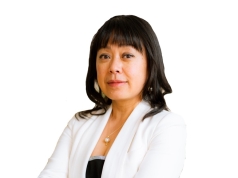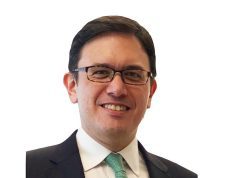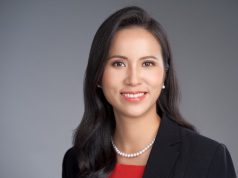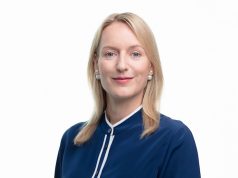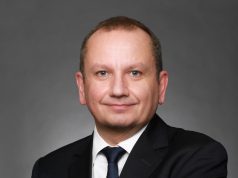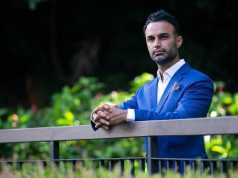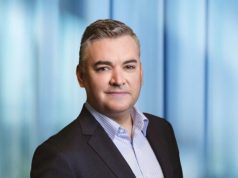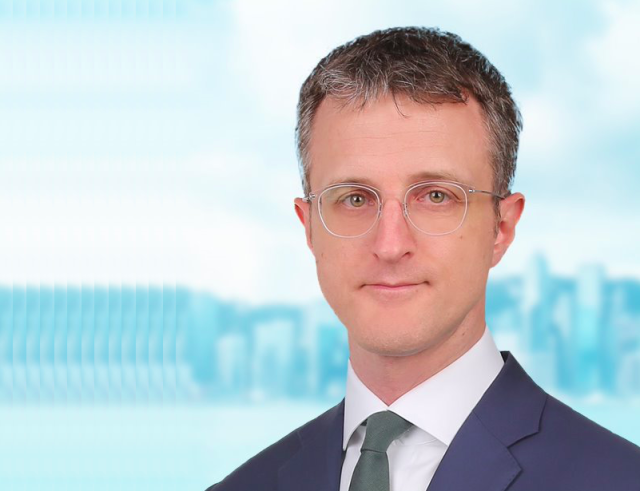
The 2022 Investment Outlook: Simon Coxeter Mercer Director of Strategic Research for Asia
The 2022 Investment Outlook
Where do you invest $1 million, $10 million, $100 million or $1 billion?

( Caproasia | Introduction – With COVID-19 (2020 to 2021), we had seen de-globalisation, emergence of new economies shaped by technologies, hybrid & remote work, accelerated implementation of climate change policies, new long-term plan by China including “Common Prosperity”, growth of digital securities & cryptocurrencies, cryptocurrencies clampdown, United States sanctions on Chinese companies and increased scrutiny on technology companies. Most nations have a supportive monetary policies to support jobs and economic stability, but also caused a wider income gap between the rich, upper-income, middle-income and the lower-income. In the short-run, we have economic stability, but in the long-run, we may face social problems that may cause political uncertainties, and therefore consequentially, create economic uncertainties.
In 2022, the impact of Russia & Ukraine on investments, businesses and global economy seems to have become the new focal point, overtaking the ongoing impact of COVID-19 pandemic. New issues arising from the impact of Russia & Ukraine include sanctions, asset write-down, defaults, business shutdown, geopolitical risks, increasing energy prices, inflation, stagflation and social divide.
- If you are a private investor, where do you invest $1 million, $10 million, $100 million in 2022?
- If you are a professional investor or institutional investor, where do you invest $10 million, $100 million or $1 billion in 2022?
We speak to leading Chief Investment Officers, Investment Managers and Portfolio Managers on their Investment Outlook for 2022. )
The 2022 Investment Outlook with Simon Coxeter, Mercer Director of Strategic Research for Asia, Middle East & Africa (AMEA) & Latin America

“ key risk to financial markets is a policy mistake by a central bank “
2022 Investment Outlook:
- The World in 2022: The world is changing on various fronts … Monetary policy and thinking is being reshaped.
- On Policies: Regulators and governments are increasingly active, with plans to introduce a global minimum tax rate agreed between 137 countries.
- Geopolitical Risks: Russia-Ukraine crisis provides a stark reminder of how geopolitical flashpoints can increase economic and market uncertainty.
- Global Coordination: Increased global coordination in the fight against climate change, innovation and disruption (most notably healthcare and finance).
- Key Trend: Ongoing trend is the shift from efficiency to resiliency.
- On Globalization: The shift away from globalization, with efficiency no longer the overriding objective, could lower productivity and also contribute further to inflation.
- Key Risk: Key risk to financial markets is a policy mistake by a central bank.
- Potential Risk: Another risk is the emergence of other variants of the coronavirus.
- Silver lining: Pandemic and geopolitical tensions have intensified investor focus on other potential future system shocks and risks like climate change, water scarcity and social risks.
On Investments:
- Spotlight: We expect even more interest in sustainable investing.
- Investment Considerations: Time for an alternative (investment), Protect against inflation, Reassess China exposure, Invest Sustainably, Challenge your home bias.
- For institutional investors: Changing of the guard, Positioning for transition, Modern diversification.
- On China: Institutional investors would benefit from having a larger allocation to China’s onshore (A-share) market through a dedicated China equity allocation.
- On Alternatives: Consider exploring alternative strategies such as private equity and private debt.
- On Cryptocurrency: We do not view cryptocurrencies in their current form as an investable proposition or store of value … assessing fair value is close to impossible.
- General advice for investors: Diversification, investment time horizon, guard against behavioral biases, benefits of active management.
- Why diversification: Diversification is really the portfolio manifestation of intellectual honesty in recognizing that we may be wrong about the future.
- Inherited Bias: Behavioral biases are often traits we inherited from our ancestors, hardwired into the physiology of our brain.
- On Newsfeeds: Easy to get caught up in short-term newsflow and volatility and make investment decisions that ultimately destroy value.
- On Travel: Travelled to Spain & United Kingdom. Next to Vietnam & maybe Japan.
Simon Coxeter, Mercer Director of Strategic Research for Asia, Middle East & Africa (AMEA) & Latin America

Simon Coxeter is Director of Strategic Research for Asia, Middle East & Africa (AMEA) & Latin America at Mercer based in Singapore. Simon also evaluates investment strategies for Mercer’s Equity Boutique and Diversifying Alternatives Boutique. Additionally, Simon has performed advisory engagements with a range of client types across a number of investment-related issues.
Mercer – Mercer is the world’s largest Outsourced Chief Investment Officer (OCIO) with $380 billion assets under management (AUM, Q1 2021). Mercer maintains more than $26 billion in alternatives AUM and $164 billion in alternatives Assets under Advisory (Q2 2021). Mercer is a business of Marsh McLennan (NYSE: MMC), the world’s leading professional services firm in the areas of risk, strategy and people, with 83,000 colleagues and annual revenue of nearly $20 billion. Through its market-leading businesses including Marsh, Guy Carpenter and Oliver Wyman, Marsh McLennan helps clients navigate an increasingly dynamic and complex environment.
1. What are the key investment trends and risks in 2022, and beyond (to 2030)?

Simon Coxeter: The world is changing on various fronts. Monetary policy and thinking is being reshaped as inflation balloons past central bank targets, and policymakers are grappling with the consequences of bloated balance sheets, inflated asset markets and disrupted global supply chains. In parallel, regulators and governments are increasingly active, with plans to introduce a global minimum tax rate agreed between 137 countries in late 2021, for example:Statement on a Two-Pillar Solution to Address the Tax Challenges Arising from the Digitalisation of the Economy on 8th October 2021 by OECD. Separately, the Russia-Ukraine crisis provides a stark reminder of how geopolitical flashpoints can increase economic and market uncertainty.
We also see increased global coordination in the fight against climate change, with the US, China, India, Australia, and Saudi Arabia all committing to various forms of net zero targets. Innovation and disruption is evident across a number of sectors, most notably healthcare (in the wake of the COVID-19 pandemic) and finance (particularly decentralized finance, or “DeFi”).
An ongoing trend is the shift from efficiency to resiliency, because the pandemic and various geopolitical frictions over recent years continue to expose vulnerabilities in global supply chains, both in terms of just-in-time inventory management and the risks of reliance on sections of the supply chain in other countries. The shift away from globalization, with efficiency no longer the overriding objective, could lower productivity and also contribute further to inflation.
One of the key risks to financial markets is a policy mistake by a central bank. Take for example a situation where higher inflation persists and the Fed does not increase interest rates. That could lead to inflation expectations becoming unanchored, which would then force the Fed to aggressively tighten policy and likely cause a recession. Another risk is the emergence of other variants of the coronavirus, overcoming the defense offered by currently available vaccines. In this scenario, countries may have to re-impose lockdown measures until vaccines are updated.
The silver lining is that the pandemic and geopolitical tensions have intensified investor focus on other potential future system shocks and risks like climate change, water scarcity and social risks, and so we expect even more interest in sustainable investing.
To translate these and other developments for our institutional investor clients, we have identified three overarching themes which we believe will affect investment decisions in 2022 and beyond (Full paper: Mercer Investment Themes & Opportunities 2022)
- Changing of the guard: Understanding the effects of the changing fortunes of key economic players and ways of thinking that have held sway for a long time, including the evolving objectives of monetary policies; the prospect of an “Asian century”; and the dramatic re-morphing of how finance is provided.
- Positioning for transition: How investors should plan for the changes required to put us on a more sustainable path; the role of impact investing; the management of resources to facilitate the green transition; and the power that can be exercised through engagement.
- Modern diversification: How portfolios should be reinvented to hit target returns while maintaining protection; the use of dynamic asset allocation between strategies and themes; and how to gain access to emergent innovators.
“ The shift away from globalization, with efficiency no longer the overriding objective “
2. What are some of the key considerations for investors in positioning their portfolio?

Simon Coxeter: While many of the considerations below are relevant to a broad range of institutional investors, each investor has unique circumstances, risk tolerances, liquidity needs, and objectives.
- Time for an alternative? Consider exploring alternative strategies such as private equity and private debt. Over many periods, a 60/40 equity/fixed income portfolio would have been improved with the addition of alternatives. Institutional investors can find out more in our Top Considerations for Private Markets 2022 report.
- Protect against inflation: Assess your portfolio’s sensitivity to inflation and consider any appropriate changes. Find Mercer’s latest thinking on inflation here.
- Reassess China exposure: We believe that many institutional investors would benefit from having a larger allocation to China’s onshore (A-share) market through a dedicated China equity allocation. Find out more on how you can think about positioning your portfolio for the future of emerging markets.
- Invest Sustainably: Establish sustainable investing beliefs and begin to implement these in your portfolio, such as with the development of total portfolio climate transition plans. Find more about Mercer’s sustainable investment beliefs and actionable strategies for investors here.
- Challenge your home bias: While some investors face investment restrictions on foreign investment, there are a number of reasons to consider additional diversification from large home market allocations. Find more details in our research paper.
“ Consider exploring alternative strategies such as private equity and private debt “
3. How about for Cryptocurrency?
China is perhaps the largest country that have clamped down. United States financial system is clearly supporting cryptocurrency. Will cryptocurrency post a critical risk to the financial system? Should investors invest?

Simon Coxeter: A sense of societal unease and reduced trust in the global financial system was seeded during the Global Financial Crisis and this was exacerbated by the COVID-19 pandemic as governments pursued expansionary fiscal policies, deepening inequality. The combination of beliefs about the dangers of currency debasement, a forthcoming economic system reset and technological take-over has been a powerful tailwind for cryptoassets. The story of bitcoin’s rise is expressed by some as a narrative combining dissatisfaction with authority, a need for community belonging and a desire for financial freedom.
From a strategic allocation perspective, we do not view cryptocurrencies in their current form as an investable proposition or store of value, partly because they offer no income, and assessing fair value is close to impossible. Some of the potential motives to buy cryptocurrencies are also better served by other assets like gold, in our view.
“ We do not view cryptocurrencies in their current form as an investable proposition or store of value … assessing fair value is close to impossible “
4. How do you invest for yourself? Any good advice for investors?

Simon Coxeter: I don’t purport to offer advice on my own to investors, but, for what it’s worth, I use what I think is common sense in my investment approach. I place particular emphasis on diversification, investment time horizon, guarding against behavioral biases, and the benefits of active management.
History is littered with examples of individual markets or assets experiencing protracted weak performance that took a long time to recover from. So from a portfolio perspective it does not make sense to have all your eggs in one basket. Although we all try to make well-reasoned estimates that shape our investment decisions, diversification is really the portfolio manifestation of intellectual honesty in recognizing that we may be wrong about the future. Diversification is critical in building risk-efficient portfolios, and it should be applied across multiple dimensions, such as geography, asset class, sector and individual securities.
Investment time horizon is important because it influences the risks we should be more focused on, and myopia can impair investment outcomes. It is easy to get caught up in short-term newsflow and volatility and make investment decisions that ultimately destroy value.
Behavioral biases are often traits we inherited from our ancestors, hardwired into the physiology of our brain. Overconfidence, for example, is a common behavioral bias, and that was really important from an evolutionary perspective because cavepeople would not have tried to defeat woolly mammoths or achieve other great leaps in progress without overconfidence. Unfortunately, this does not help investing as it is important to acknowledge that we could be wrong and factor that into our portfolio construction decisions.
Although a fairly simple allocation to passive equities and bonds has done well since the global financial crisis, there are good reasons to believe that market returns will be lower over the next decade with low rates, relatively full valuations across many segments of the investment universe, economic headwinds and other factors. So the contribution to overall returns from the outperformance of active managers may be more important in achieving return objectives. Also, given the divergences and dispersion we might expect going forward, it may be a more favorable environment for active managers to add value.
“ Diversification is really the portfolio manifestation of intellectual honesty in recognizing that we may be wrong about the future “
2022 Exclusive Interview with Simon Coxeter
Thank you Simon Coxeter for sharing your valuable insights at The 2022 Investment Outlook. Simon Coxeter is Director of Strategic Research for Asia, Middle East & Africa (AMEA) & Latin America at Mercer based in Singapore.
Mercer is the world’s largest Outsourced Chief Investment Officer (OCIO) with $380 billion assets under management (AUM) reached $380 billion (Q1 2021). Mercer maintains more than $26 billion in alternatives AUM and $164 billion in alternatives Assets under Advisory (Q2 2021). Mercer is a business of Marsh McLennan (NYSE: MMC), the world’s leading professional services firm in the areas of risk, strategy and people, with 83,000 colleagues and annual revenue of nearly $20 billion. Through its market-leading businesses including Marsh, Guy Carpenter and Oliver Wyman, Marsh McLennan helps clients navigate an increasingly dynamic and complex environment.
Simon Coxeter, Mercer Director of Strategic Research for Asia, Middle East & Africa (AMEA) & Latin America

Simon Coxeter is Director of Strategic Research for Asia, Middle East & Africa (AMEA) & Latin America at Mercer based in Singapore. Simon also evaluates investment strategies for Mercer’s Equity Boutique and Diversifying Alternatives Boutique. Additionally, Simon has performed advisory engagements with a range of client types across a number of investment-related issues.
Mercer is the world’s largest Outsourced Chief Investment Officer (OCIO) with $380 billion assets under management (AUM, Q1 2021). Mercer maintains more than $26 billion in alternatives AUM and $164 billion in alternatives Assets under Advisory (Q2 2021).
Mercer
 Mercer believes in building brighter futures by redefining the world of work, reshaping retirement and investment outcomes, and unlocking real health and well-being. Mercer’s approximately 25,000 employees are based in 43 countries and the firm operates in 130 countries.
Mercer believes in building brighter futures by redefining the world of work, reshaping retirement and investment outcomes, and unlocking real health and well-being. Mercer’s approximately 25,000 employees are based in 43 countries and the firm operates in 130 countries.
Mercer is a business of Marsh McLennan (NYSE: MMC), the world’s leading professional services firm in the areas of risk, strategy and people, with 83,000 colleagues and annual revenue of nearly $20 billion. Through its market-leading businesses including Marsh, Guy Carpenter and Oliver Wyman, Marsh McLennan helps clients navigate an increasingly dynamic and complex environment.
Sign Up / Register
Caproasia Users
- Manage $20 million to $3 billion of assets
- Invest $3 million to $300 million
- Advise institutions, billionaires, UHNWs & HNWs
Caproasia Platforms | 11,000 Investors & Advisors
- Caproasia.com
- Caproasia Access
- Caproasia Events
- The Financial Centre | Find Services
- Membership
- Family Office Circle
- Professional Investor Circle
- Investor Relations Network
Monthly Roundtable & Networking
Family Office Programs
The 2025 Investment Day
- March - Hong Kong
- March - Singapore
- July - Hong Kong
- July - Singapore
- Sept- Hong Kong
- Sept - Singapore
- Oct- Hong Kong
- Nov - Singapore
- Visit: The Investment Day | Register: Click here
Caproasia Summits
- The Institutional Investor Summit
- The Investment / Alternatives Summit
- The Private Wealth Summit
- The Family Office Summit
- The CEO & Entrepreneur Summit
- The Capital Markets Summit
- The ESG / Sustainable Investment Summit






















